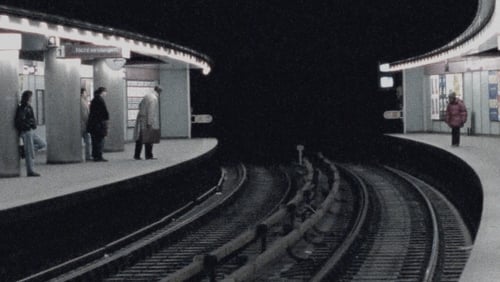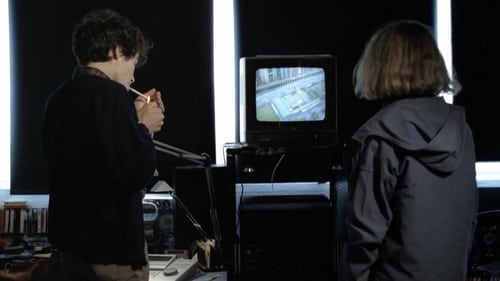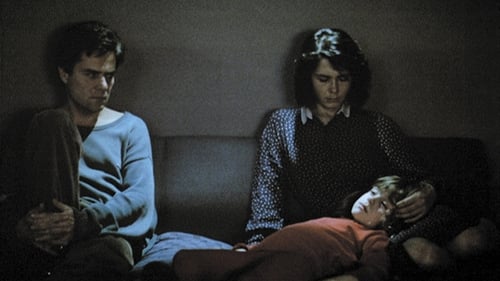
Editor
1993년 크리스마스 전날 뚜렷한 이유도 없이 열아홉살 대학생이 은행에 들어가 총을 난사한다. 영화는 이 대학생과 조우하게 되는 평범한 사람들의 삶 속으로 들어가 그들을 오랜 시간 관찰한다. 이들이 비극을 맞이해야 할 이유는 어디에도 없다. 등장인물들의 일상 사이사이에 유고 내전, 소말리아 내전 등 비극의 현장을 전하는 뉴스 릴이 자꾸 끼어든다.

Editor
The disabled ex-soldier Andreas Pum lost a leg for emperor and father land. After leaving the army he receives a license and a drehorgel. One day he gets into a controversy with a welldressed gentleman, disturbs the public order, and hits a policeman. Andreas Pum goes to jail, loses his license and becomes toilet guard in the Cafe Halali after his release. Only at the moment of death he recognizes that he was always too decent and too obedient.

Editor
영화는 돼지들이 무참히 살육되는 영상으로 시작된다. 이 장면은 주인공 베니가 반복해서 돌려보는 영상물 중 하나이기도 하다. 부유한 집안에서 자랐지만, 고립되고 단절된 생활을 하는 베니는 그의 비디오 카메라를 통해서만 세상을 경험할 뿐이다. 우연히 만나 친구가 된 여자아이를 죽이고 그 장면을 카메라에 담아 부모에게 보여주는 베니. 부모는 이 살인사건을 은폐하려고 하는데...

Editor
This film, dramatizing Weininger's life, is an adaptation of the 1982 play Soul of a Jew by Israeli writer Joshua Sobol. Weininger's last despondent hours are depicted in a dramatic furioso. His whole life passes by like distorted images in a mirror. The young genius fights a desperate battle against time, his fellow men - and against himself.

Editor
게오르그는 대기업에서 일하고, 그의 아내 안나는 가족이 운영하는 상점에서 안경사 일을 한다. 어린 딸 에바는 몹시 귀엽고 똘똘하게 생겼다. 그런데 이들 가족은 문득 삶의 무감각과 단절감에 빠져든다. 그리고는 현실에 존재하지 않는 미지의 대륙으로 떠날 준비에 들어간다. 게오르그의 부모조차 도저히 받아들이기 힘든 방식으로 이들은 그 결심을 실천한다.

Editor
One of the main theses of the Marienthal study was that prolonged unemployment leads to a state of apathy in which the victims do not utilize any longer even the few opportunities left to them. The vicious cycle between reduced opportunities and reduced level of aspiration has remained the focus of all subsequent discussions.

Editor
Josef "Schmutz" (german for "dirt"), a security guard obsessed with duty and cleanliness, is given the task of guarding a decommissioned industrial plant. While maintaining his devotion to the authority of property right, the self-proclaimed "Representative of Ownership" is himself slowly losing his sense of reality.

Editor
Vienna 1910. Hans Trautendorffer, an 35 year old journalist bets with his newpaper chief that he'll be able to work as a farm worker in the country for a whole year. But his dreams of a healthy, quiet country life don't come true- at least not the way he expected it.

Editor
In the space of a short 65 minutes, a woman enters the luxury apartment of a wealthy man with an eccentric fascination for the female form and is paid both for her sexual favors and for lying there naked and letting him examine the aesthetics of her body. For most of the hour, as the concise narration of Marguerite Duras' novel on eroticism and aesthetics fills the aural gaps, actress Marie Colbin's form fills the visual gaps. But unless viewers consider the feminine eyeball or microscopic views of skin exotic and worth lingering over, the eroticism lies more in the imagination than on the screen. In fact, the female body lying on the bed, taken away from the spirit that animates it, is really just a corpse -- raising the question, exactly what is the "malady of death?"

Editor
This two-part drama examines the fate of Haneke’s own generation which came of age after World War II. The first part depicts the generational gap between 1950s teenagers and their parents while the second shows this same group of characters twenty years later as they have grown up to be dysfunctional and suicidal adults. Regarded as the most significant of Haneke’s early works, Lemmings contains incipient treatments of many of the themes he would later elaborate on in his theatrical features.

Editor
This two-part drama examines the fate of Haneke’s own generation which came of age after World War II. The first part depicts the generational gap between 1950s teenagers and their parents while the second shows this same group of characters twenty years later as they have grown up to be dysfunctional and suicidal adults. Regarded as the most significant of Haneke’s early works, Lemmings contains incipient treatments of many of the themes he would later elaborate on in his theatrical features.

Editor
Based on Joseph Roth's novella.










